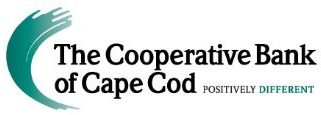Massachusetts employer confidence rose for the ninth time in 10 months during June amid optimism about an economy that is finally attracting more people into the work force.
The Associated Industries of Massachusetts Business Confidence Index (BCI) rose one point to 61.8 last month, leaving it 5.7 points higher than a year ago. The Index has gained ground in each of the past two months after slipping in April.
The results come a month after state officials reported a long-awaited expansion of the Massachusetts labor market – the labor-force participation rate rose to 66.7 percent in May, its highest mark since before the Great Recession.
“Employer confidence in both the state and national economies remains well above the level we saw a year ago, especially among manufacturers,” said Raymond G. Torto, Chair of AIM’s Board of Economic Advisors (BEA) and Lecturer, Harvard Graduate School of Design.
“Key Massachusetts indicators such as total jobs, wages and gross state product far exceed pre-recession levels and that is outweighing concerns about long-term growth.”
The AIM Index, based on a survey of Massachusetts employers, has appeared monthly since July 1991. It is calculated on a 100-point scale, with 50 as neutral; a reading above 50 is positive, while below 50 is negative. The Index reached its historic high of 68.5 on two occasions in 1997-98, and its all-time low of 33.3 in February 2009.
The index has remained above 50 since October 2013.
Constituent Indicators
The constituent indicators that make up the overall Business Confidence Index were mostly positive during June.
The Massachusetts Index, assessing business conditions within the commonwealth, gained 2.1 points to 64.2, leaving it 5.7 points higher than in June 2016.
The U.S. Index of national business conditions rose 2.8 points to 57.4 despite lingering uncertainty about federal economic policy. June marked the 87th consecutive month in which employers have been more optimistic about the Massachusetts economy than the national economy.
The Current Index, which assesses overall business conditions at the time of the survey, rose 1.5 points to 61.9 while the Future Index, measuring expectations for six months out, increased 0.4 points to 61.7. The Future Index was 5.1 points higher than a year ago.
Operational Views
The Company Index, reflecting overall business conditions, was unchanged for the month at 62.4 and up 4.7 points during the 12-month period. The Employment Index fell 0.4 points to 58.1 while the Sales index rose 0.6 points to 62.6.
The AIM survey found that 39 percent of respondents reported adding staff during the past six months while 18 percent reduced employment. Expectations for the next six months are stable – 38 percent hiring and only 10 percent downsizing.
Alan Clayton-Matthews, a professor in the School of Public Policy and Urban Affairs at Northeastern University, said the supply of workers remains one of the most important factors in the ability of Massachusetts to maintain long-term economic growth.
“There is little slack left in the labor market. Unemployment rates are back to pre-recession levels, and employment rates are very close to pre-recession levels. The slack that does remain is largely among young workers, those with less than a high-school education, and part-time workers who have been unable to find full-time work, suggesting that many workers lack the skills that employers are seeking,” Clayton-Matthews said.
Overall participation in the labor force nationally has hovered below 63 percent during the recovery, compared with more than 66 percent before the recession.
Eastern Massachusetts companies were more confident in June than those in the western portion of the commonwealth. Eastern Massachusetts employers posted a 61.8 confidence reading in June versus 60.8 for employers in the west.
Public Policy Uncertainty
AIM President and CEO Richard C. Lord, also a BEA member, said employers are increasingly concerned about a passel of potentially expensive and disruptive Beacon Hill proposals, including a surtax on incomes more than $1 million, paid family leave and an employer assessment to close a budget gap in the MassHealth program.
“Massachusetts employers have led what is now one of the longest and most consistent economic recoveries of the past 100 years. Much of that growth reflects the fact that policymakers have refrained from unnecessarily raising business costs and imposing inefficient regulation,” Lord said.
“We look forward to working with the Legislature and the Baker administration to ensure that those policies continue.”
The monthly Business Confidence Index, initiated by AIM’s Board of Economic Advisors in July 1991, is based on a survey of AIM member companies across Massachusetts, asking questions about current and prospective business conditions in the state and nation, as well as for respondents’ own operations. On the Index’s 100-point scale, a reading above 50 indicates that the state’s employer community is predominantly optimistic, while a reading below 50 points to a negative assessment of business conditions. A number of component sub-indices are derived by analyzing responses to selected questions or those of particular groups of respondents.
Employer confidence rises in June





















